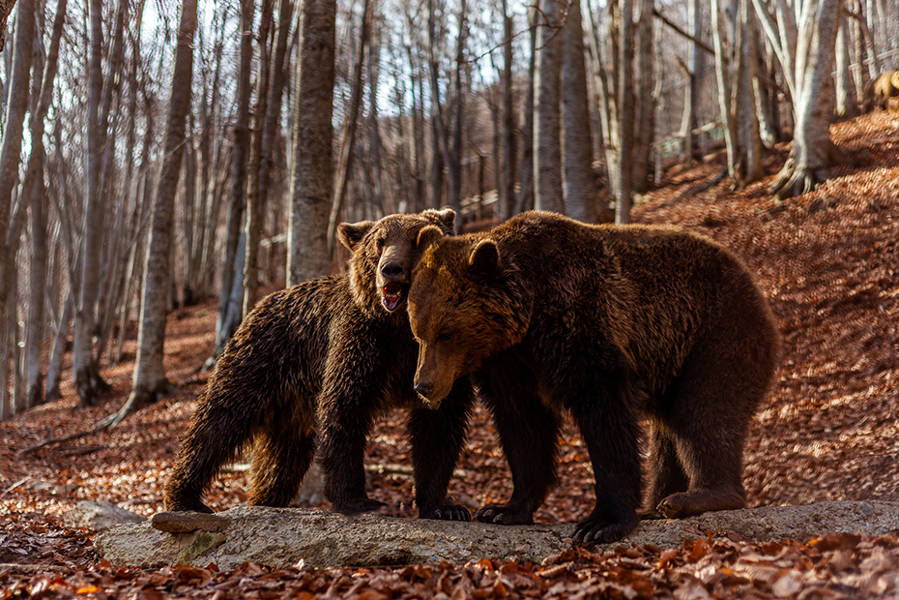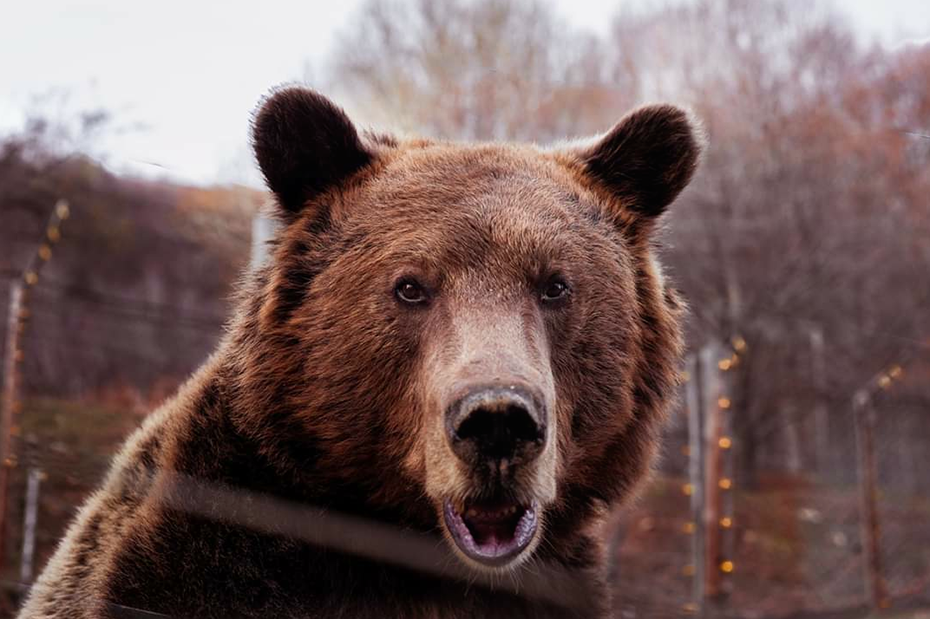
Arcturos: Providing for Bear Necessities
The nonprofit was founded in 1992, driven by the need to end the capture, torture, and killing of bears. Back in those days, it was not uncommon to encounter dancing bears, captured young or born in captivity, toured in chains around villages, where they were exhibited as tame beasts. Sadly, this practice persists to this day in certain parts of Southeast Europe, and our continuous pursuit of this wild and beautiful species has almost driven it to extinction.
Bears from the whole Balkan Peninsula that have been held captive and abused or are found injured are taken in by the Arcturos team and nursed back to health. Like orphaned bear cubs, they lack the skills to survive in the wild, so they live in the nonprofit’s expansive Bear Shelter, located near the traditional village of Nymfeo. Those that recover and prove able to fend for themselves are released back into the wild—if you have ever witnessed such a moment, you will surely treasure it for life.
The Stavros Niarchos Foundation (SNF) provided a grant to Arcturos to enlarge and augment the enclosed space in which the bears it hosts roam free, to provide enhanced medical care, and to improve accessibility to the site. Visitors come from near and far to catch a glimpse of this fascinating species, which helps provide funds for their care. The onset of the pandemic and the subsequent lockdown caused a huge dent in income for Arcturos during what would otherwise be a peak season, but they were able to overcome this through an appeal for support. The overwhelming response, at a time of financial strain for many, is a testament to our ability to effect change if we each play our part. And this is precisely how people can save nature.
During the lockdown and the accompanying pause in human activity, there was much talk of nature recovering. But it will take much more than this. We need to incorporate respect for nature into every aspect of our lives: the way we live daily, the way we produce, and the way we consume.
Conservation is not about ‘retreating’ and allowing nature to take its course; we have come too far to go back, and the past was not the perfect place we romanticize it to have been. It is not about prioritizing wildlife over humans. It is about recognizing what our bare necessities are, such as clean air and clean water and a dignified existence for all. It is about treating every lifeform with respect. And it is about managing our planet wisely with all the technological means we now have available, because only we have the intellect and the sensitivity to be able to do so.
Katerina Triantafyllou,
SNF Program Officer, Athens
